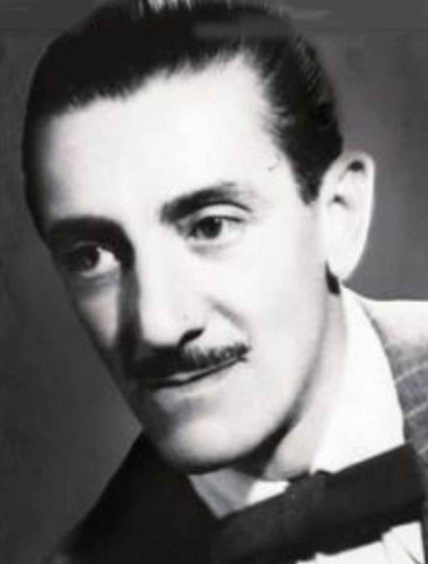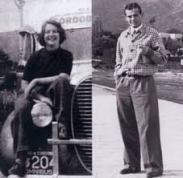
“La chacarera” must be one of Biagi’s most danceable tango classi.. “wait, what? But Lucas, are you translating folklore now??? I did NOT sign up for this!”
No, dear reader, as confusing as it sounds, the tango called La chacarera actually has nothing to do with the Argentine folklore dance called “chacarera”, or maybe I should say, it has only little to do with it. The word chacarera as used in this tango refers to someone from the countryside, specifically someone working on a farm, in this case a woman, because of the -a ending of the word. Which of these two meanings came first is a bit of a chicken and egg problem, because there seems to be little documentation on the subject. However, the word ‘chacarera’ in itself seems to have come from Quecha, the language family of the native peoples of the Andes, and it has the same connotations of farm and labor, so I would say the dance was probably named after the kind of rural population that danced it.
Now, you might start to wonder what all this talk about the countryside has to do with tango, which is quintessentially the folk song of the big city, the urban musical heritage of Buenos Aires. Well, even though tango should indeed be regarded as the folklore of Buenos Aires, a sizeable proportion of this genre is actually dedicated to Argentina’s vast interior, with themes such as the gaucho, certain typical birds and the beautiful landscapes of the pampas (and far beyond). We can also see this reflected in the tango I am presenting to you today: the protagonist of the lyric is obsessed with a pretty girl he often sees wandering on the farms or on the fields, but alas, she won’t love him back. I personally really enjoy the many references in tango music to (a somewhat idealized version of) countryside life, because Argentina is more than just Buenos Aires and those lyrics make me cherish my memories of seeing this beautiful country.
Now that you understand a bit of context behind this song, I would like to dedicate a few words to a strange phenomenon in tango music that we can see reflected here. A few lyrics have historically been altered because of government censorship or simply under the pressure of societal morals, and these lyrics were often about morally complicated topics such as prostitution and alcohol. La chacarera is a good example of this: this relatively old tango, from the early 1920s, (note: the Biagi version is from 1940!) has both an original and censored version, and the censored version, as translated below, seems like a relatively innocent tale of unrequited love. However, in the original version, the protagonist asks the farm girl why she won’t love him a little bit too […] since she already brings everyone to her bedroom anyway (paraphrashed by me). It’s quite likely that the country girl mentioned was a prostitute somewhere in Buenos Aires, but with rural origins, as there was a lot of migration in those times.
For one, I hope that this shows you how things in the world of tango lyrics are not always how they seem. I do have to stress that in contrast, most lyrics actually DON’T have some kind of hidden meaning, but La chacarera is a great example of when they do.
La chacarera (Country girl)
Lyrics: Juan Andrés Caruso
Music: Juan Maglio/José Servidio
Chacarera, chacarera.
Chacarera de mi amor,
si te pido que me quieras
no me contestes que no.
Chacarera, chacarera,
no me hagas más sufrir,
si querés tanto a la vida,
Quereme un poquito a mi.
Country girl, country girl,
country girl whom I love,
if I ask you to love me back,
don’t tell me ‘no’.
Country girl, country girl,
don’t make me suffer anymore,
since you already love life so much,
why not love me just a little bit too?
(Chacarerita, chacarerita
que por los campos vas vaporosa,
chacarerita de ojos de fuego
de labios frescos como una rosa,
chacarerita tan linda y graciosa,
que en busca de flores al campo te vas,
chacarerita tu linda boquita,
tu linda boquita quisiera besar.)
(Sweet country girl, sweet country girl,
you walk through the fields like a spirit,
sweet country girl with your fiery eyes
and lips fresh like a rose.
Country girl, so pretty and graceful,
gathering flowers in the fields,
sweet country girl with your lovely mouth,
with sweet lips that I want to kiss.)
(Chacarerita que vas
Siempre sutil,
siempre gentil
y simpática.
Chacarerita que estás
llena de amor,
como una flor
enigmática.
Mi linda chacarerita
tené de mi compasión,
pues nadie podrá adorarte
tanto, tanto como te adoro yo.)
(Sweet country girl, you’re
always gentle,
always kind,
and understanding.
Sweet country girl,
full of love,
like a mysterious flower.
My beautiful country girl,
take pity on me,
since nobody could ever adore you
as much as I adore you.)
(Chacarera, chacarera.
Chacarera buena moza,
que vas siempre entre las flores
igual que una mariposa.
Chacarera, chacarera.
No me hagas más sufrir,
si querés tanto a la vida,
quereme un poquito a mi.)
(Country girl, country girl,
pretty country girl,
always wandering among the flowers,
like a butterfly.
Country girl, country girl,
don’t make me suffer anymore,
since you already love life so much,
why not love me just a little bit too?)
(Chacarerita, chacarerita,
chacarerita me tenés loco,
chacarerita no seas tan mala
chacarerita quereme un poco.
Chacarerita tan linda y graciosa,
que en busca de flores al campo te vas,
chacarerita tu linda boquita
tu linda boquita dejame besar.)
(Sweet country girl, sweet country girl,
sweet country girl, I’m crazy about you,
sweet country girl, don’t be so mean,
sweet country girl, love me a little bit too.
Sweet country girl, so pretty and graceful,
gathering flowers in the fields,
sweet country girl with your lovely mouth,
let me kiss your sweet lips.)




You must be logged in to post a comment.